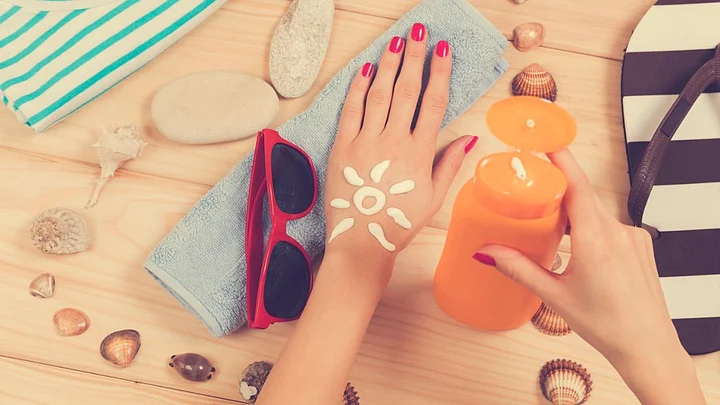Sunscreen is not a part of make-up but a part of our skincare routine. How regularly we apply sunscreen and how often we reapply it, decides how healthier and younger our skin will look.
You might be hearing this since ages and must have read it several times that sunscreen is important for our skin and it must be a part of your daily routine. But how many of you have heard about its usage, how to select a sunscreen or if there is an expiry date for sunscreen or not.
The more popular a product is, the more misinformation there is related to it. You all must have also heard conflicting information related to its SPF, expiry date, reapplication, water resistance, etc.
We will clear all these myths and provide you with information that is backed up by science.
'Sunscreen With Higher SPF Does Not Require Reapplication'
According to the American Association of Dermatology, sunscreen is effective on the skin only for about 2 hours irrespective of its SPF. The SPF is the measure of sunlight required to damage the skin; it does not decide the time in which the damage is caused.
Therefore, select a sunscreen with SPF 30 or more but apply it every 2 hours because its higher SPF does not mean a sunscreen protects you for a longer time.
'Water-Resistant Sunscreen Doesn't Require Reapplication'
This is a myth. If that would be the case, we couldn't wash off the sunscreen off our face. Sunscreen lasts on our skin only for a period of 2 hours and less and therefore, we should reapply it irrespective of it being water-resistant or not.
Water-resistant sunscreens form a better protective layer in water while swimming or while we sweat to prevent the redness, sunburns, and rashes on the skin but that doesn't make it a permanent layer of protection for the skin.
'Sunscreen Causes Cancer'
According to PubMed Central, there is no scientific evidence or research to support the myth that sunscreen can cause cancer.
In fact, American Association of Dermatology suggests people to wear sunscreen if they want to protect themselves from the harmful UVA rays, which are responsible for more than 80% of skin cancer cases.
'Sunscreen Is Not Required With SPF Make-Up'
According to John Hopkins Medicine, SPF make-up is not enough to protect your skin from the harmful sunrays. You cannot skip the sunscreen even if your foundation and make-up products are SPF-based.
Moreover, you need to follow the same routine with sunscreen. Apply it before make-up and then keep applying it every 2 hours above make-up if you are out for long.
Higher SPF Gives More Protection
According to the Skin Cancer Foundation, the reality is that sunscreen with higher SPF does not protect the skin more from the sun damage. While a sunscreen with SPF 30 protects you from the 3% of the sun damage, SPF 50 or more protects you only from 2% of it or less.
Though as the SPF goes higher, these sunscreens become more expensive but there is no such need. Higher SPF sunscreens will not protect your skin for long either. You need to reapply it every 2 hours.
'Sunscreen Is Not Required on a Cloudy or Winter Days'
According to the Centers of Disease Control and Prevention, the low temperature does not prevent the UV rays from damaging your skin on cloudy and cold days in winter. UV rays can pass through clouds and can reflect from sand, cement, snow, etc.
According to cancer.org, UV rays can damage your skin to the same level on a cloudy or windy day as it would do on a warm, sunny day.
'Dark Skinned People Do Not Require Sunscreen'
According to the Australian Cancer Council, it is false that people with darker skin tone do not require sunscreen to protect their skin from UV radiation. UV rays can cause the same amount of damage to a dark person as it would do to a fair-toned person.
The damage might not be visible due to the darker skin tone but that does not mean that the sunrays are not harmful for the dusky, olive or dark toned people.

